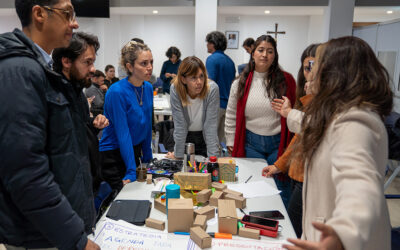The following reflection by Chiara Lubich highlights a key dimension of a “spirituality of communion” – the fact of being inseparably linked to one another, which calls for endurance. The coronavirus pandemic has made us experience this interdependence in many ways, and has also called us to increase out capacity for endurance. We do not go to God alone, but with our brothers and sisters. And this is the “something more” that we have. We must tend towards holiness together with others. Practically speaking, this means helping our brothers and sisters reach holiness in the same way as we help ourselves. It’s a demanding commitment that we too easily forget, but which is the necessary condition for becoming holy. Indeed it is only by loving our brothers and sisters to this extent that we can hope to have Jesus in our midst. What is the best way to practice this demanding love for our brothers and sisters? There are a number of ways, but one of them in particular must be considered carefully and has been confirmed for me by many years of experience. I’ve already spoken about it, but it’s so important that it’s worth repeating. The community life we live, whether permanently or on a temporary basis, asks us to love our brothers or sisters all the time. This means always making ourselves one with them and it’s what we try to do. However, even if we were to commit ourselves with all our strength to doing this, we wouldn’t always succeed because we are still in this world and liable to faults and failings. Sooner or later, one or other of us messes things up. What should we do? If we were the ones who stopped loving, we should start loving again straightaway. And if it was our brother or sister’s fault, what should we do? Believe me, we would be wise to listen to what St Paul says when he emphasizes endurance regarding others, because endurance is not a lower grade of love; it is intrinsic to love, an aspect of charity, a key dimension of love. In fact, according to St Paul, love not only “bears all things, believes all things, hopes all things”, but also “endures all things”. To endure is to love, it is charity. Without it, we do not truly love. The time will come when we can make our neighbour aware of what has gone wrong; the Gospel asks us to do this too. … But we do it only out of love and certainly not to rant at our brothers or sisters about how they have wronged us. We say things with as much love as possible, knowing that if they improve, I too will gain from it, because this is what is new about our spiritual journey: I must work towards my brother or sister’s perfection if I want to reach my own. We are bound to one another. There’s no alternative.
Chiara Lubich
(Taken from a telephone conference call, Rocca di Papa, 19th June 2003)




0 Comments